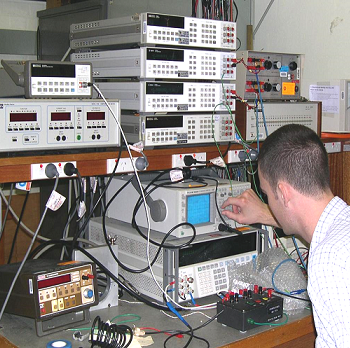
Electrical measurement
PLEASE NOTE: Training delivery is subject to participant numbers.
A confirmation email will be sent to each participant 2 weeks prior to the course date. If you are attending the face-to-face course we suggest you book your travel and accommodation arrangements after receiving this course confirmation email. Training materials will be provided as hard-copies on the day of the course.
Please note, a tax invoice will automatically be emailed to you after the credit card payment goes through. If you don't receive it, check your Junk inbox. Do not tick the tax invoice button if paying by credit card. For those who require an invoice to make a payment, please choose the relevant option after checkout.
This course provides in-depth knowledge of the theory and practice of electrical measurement using digital multimeters and calibrators; special attention is given to important practical issues such as grounding, interference and thermal effects. The course is most suitable for those already familiar with electrical measurements using digital multimeters and calibrators, as well as with the estimation of measurement uncertainty, wishing to further advance their knowledge and skills. Please find the link to the brochure here.
NOTE: Participants with limited experience in estimating measurement uncertainty would benefit from first attending the Introduction to Estimating Measurement Uncertainty course.
Course will start at 9 am and will finish by 5 pm.
Location: NMI, 36 Bradfield Rd, Lindfield, NSW, 2070
Knowledge and skills
The course will provide you with the knowledge and skills to:
- understand the principles of operation of digital multimeters and calibrators
- understand the principles and advanced techniques used in the measurement of electrical quantities
- understand the processes involved in the use and calibration of electrical equipment
- identify various sources of error that affect electrical measurements
Topics
The topics covered include:
- overview of primary standards
- measurement of resistance
- principles of operation of digital multimeters and calibrators
- measurement of direct voltage and current
- principles of calibration
- measurement of alternating voltage and current
- measurement of high voltage
- reporting calibration data and uncertainties
- estimating measurement uncertainty
Past Attendees have said...
|
"By applying the knowledge gained in this course, we will greatly improve our measurement processes" "Increasing our knowledge of measurement uncertainties definitely helps with our NATA accreditation" |
Further information
For more information contact +61 2 8467 3796 or training@measurement.gov.au.
View more Training and Assessments.
